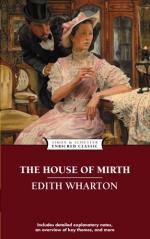|
This section contains 362 words (approx. 1 page at 400 words per page) |

|
One of the most consistent themes in The House of Mirth concerns the inevitability of one's fate. From the opening pages, the novel is permeated with a sense of doom.
That the mood of the novel's early pages predicts the ultimate destruction of the heroine comes as no surprise; in her autobiographical writing, Wharton asserts that she always tries to work backward from her ending. But Wharton deals with fate— a highly conventional theme in literature—in an altogether unorthodox way. It would not be unfair to accuse Wharton of mixing her allusions. She often presents Lily's doom as mythical, tying her heroine to the illfated nymphs of Greek lore. At the same time, she employs the language of social Darwinism, seeming to argue that Lily's death is inevitable because her lack of funds makes her unfit for the new social order.
Another theme...
|
This section contains 362 words (approx. 1 page at 400 words per page) |

|




